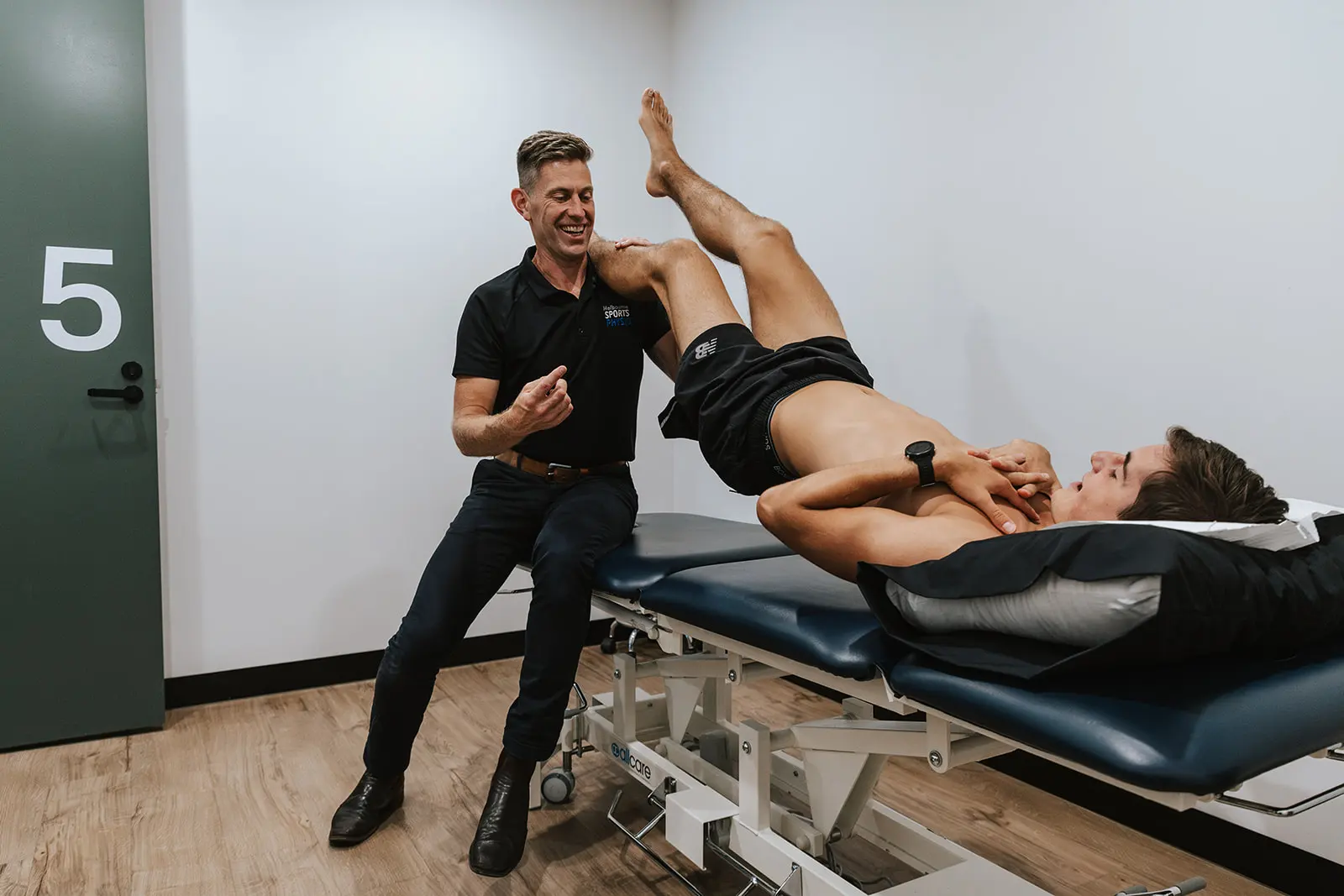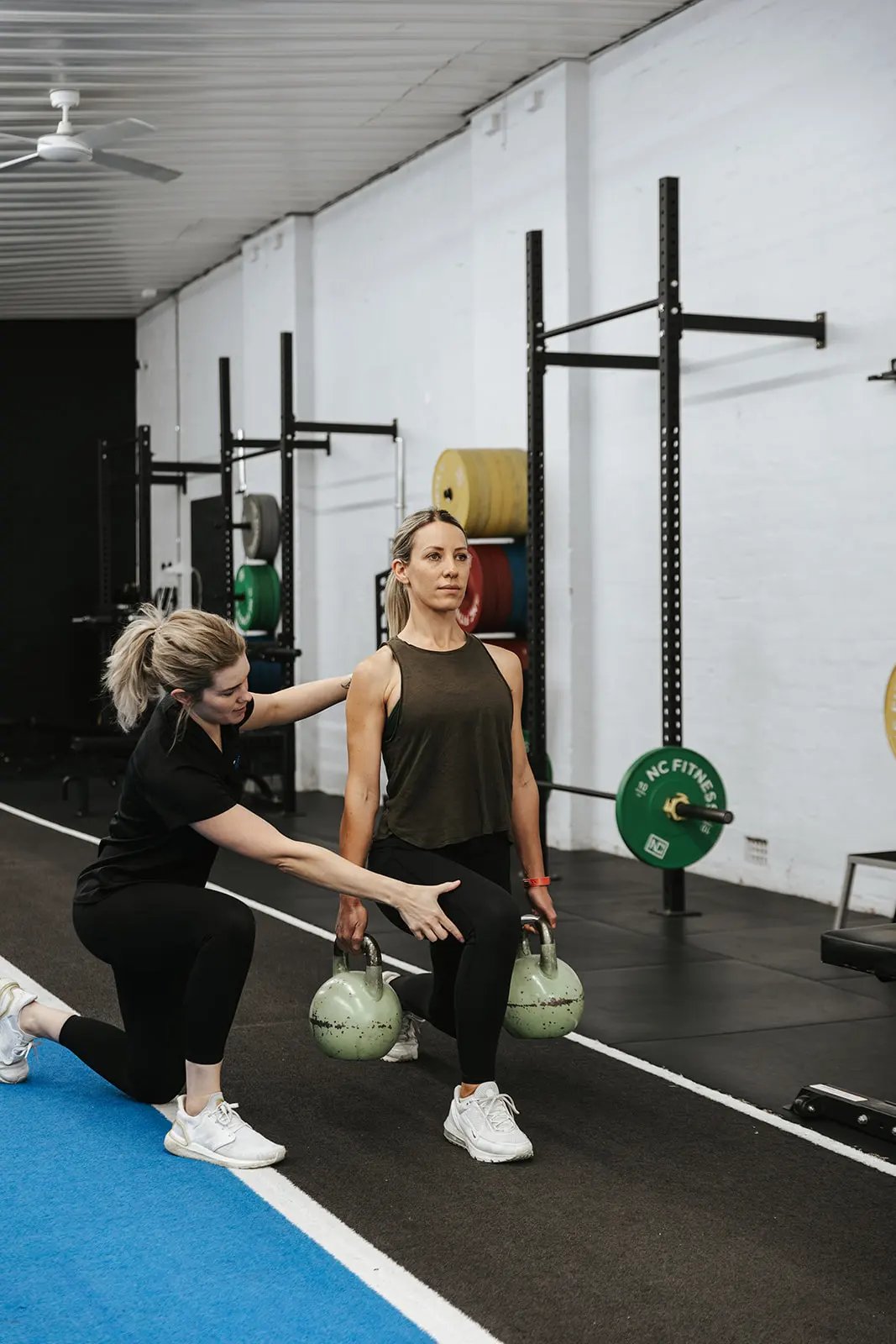February 2025
Lia Evans, Physiotherapist
Physiotherapy for Medial Collateral Ligament (MCL) Injury
Medial collateral ligament (MCL) injuries occur when the ligament on the inner side of the knee joint is overstretched.
Typically this occurs when the knee is forced inward, which is common in sports that involve impact, sudden directional changes or pivoting.
MCL sprains and tears cause medial/inner knee pain, swelling, and sometimes a feeling of instability or "giving way" at the knee.
Treating a suspected MCL injury begins with stopping activities that worsen the pain, and seeking medical attention to confirm the severity of the injury. In most cases, surgery is not required for an MCL injury, even with a complete rupture.
A well-structured rehabilitation plan, guided by a physiotherapist, is the most effective approach to restoring knee function.
Your physiotherapist will utilise specialist hands-on tests to decide whether a sports doctor or specialist knee brace is required.
Once your diagnosis is confirmed, your physiotherapist will measure lower limb asymmetry and create a rehabilitation plan to improve pain, and personalise this to the sport you play.
This comprehensive approach aims to achieve research-based strength goals to help prevent future knee issues.
What our clients are saying about us
Key components of physiotherapy management for MCL injuries:
1. Assessment:
Depending on the severity of the injury, a hinged knee brace may be provided to prevent further inward knee movement and support the initial healing process. The physiotherapist will assess the injury using clinical tests and, if necessary, recommend imaging such as ultrasound or MRI to rule out additional damage to the other knee structures.
2. Education:
Your physiotherapist will educate you regarding the MCL and its role for stability at the knee. The patient will be educated on the importance of strength, biomechanics, activity modification, and injury prevention strategies.
3.Therapeutic Exercises:
A customized exercise program focuses on strengthening the muscles around the knee, particularly the quadriceps, hamstrings, and hip muscles, while also improving flexibility and stability.
4. Biomechanical Correction:
The physiotherapist may assess gait and movement patterns, providing recommendations for corrective strategies, footwear, or orthotics to enhance knee function and reduce strain on the MCL.
5. Manual Therapy:
Techniques like joint mobilizations, soft tissue massage, and myofascial release are used to reduce pain and improve mobility if indicated. Additionally, K-tape may be valuable to aid joint proprioception.
6. Personalised return to Sport Plan:
A structured return to sport plan will be created to gradually reintroduce physical activity, focusing on agility, balance, and coordination to ensure a safe return to sports or daily activities. You may practice mirroring drills in the gym, for example.
Book Online Now to Fix Your Body
7. Progress Monitoring:
Regular follow-up sessions will be scheduled to track progress, adjust the treatment plan, and ensure recovery milestones are met. Your physiotherapist may utilise VALD equipment, such as the force frame, to objectively measure and provide visuals on how your strength and symmetry are improving.
8. Preventive Strategies:
The physiotherapist will help develop strategies to prevent re-injury, ensuring the patient can resume activities without experiencing recurring pain and progress onto performance enhancement.
Book Online Now to Fix Your Body
To schedule an appointment with a knee physiotherapist for MCL injury treatment, contact Melbourne Sports Physiotherapy or book online.
Book online to feel great & move well again!
Super Simple with Instant Confirmation & No Login Required!
For consultation fees and more information, please visit our Fees and FAQs page or call us on 03 9498 0205.
Some types of consultations may require pre-payment or a deposit. 100% Money Back Guarantee (T&Cs apply).
Learn how our Melbourne Sports Physio Team can help you?
At Melbourne Sports Physiotherapy our goal is to get you moving pain free as soon as possible.
But, we also want you to actually move better and live a healthier, more active and fulfilling life!
If your sports, fitness training or work has been wearing your body down, book in with one of our expert massage therapists so we can help you reduce your pain or stiffness.
If you are showing some signs of this condition or simply want help prevent this from happening in the future then book in with one of our highly experienced Remedial Massage Therapists today!
You can make an appointment by calling or booking online.



